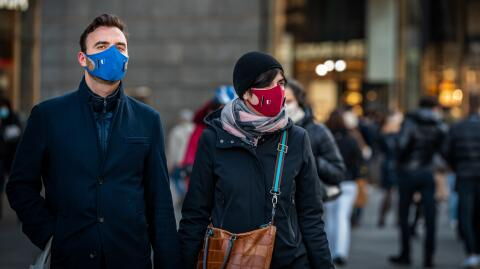For the first time since the start of the global epidemic, there has been a significant drop in contamination, which began around January 12.
Discover our latest podcast
Positive cases have halved worldwide
By way of comparison, at the time of the peak of the health crisis, the number of contaminations observed in one day in the world was 800,000. Since then, the curve has fallen steadily and in recent days there have been an average of 420,000 positive cases per day. Meaning, that rate has halved.
The number of deaths linked to COVID-19 has also fallen, even if the curve has less markedly decreased: there have been 15% fewer deaths in the past month.
How to explain this global decline?
The global decline can be explained in several ways. First, as the World Health Organization (WHO) reports in its latest report, five of the six regions of the world taken into account by the organization have seen their number of cases drop.
Only the eastern Mediterranean is showing an increase of 7%.
Among the regions of the world that have recorded a steady decline, we find:
- In the United States, positive cases have shifted from 250,000 to 100,000
- In India, the decline has been constant since September
- Japan is also one of the countries where the drop in positive cases is regular: 'the number of new cases has been divided by 4 since mid-January'
- In the United Kingdom, the number of new infections recorded in the last 24 hours amounted to 12,718
Director General of WHO, Tedros Adhanom Ghebreyesus, commenting on this global decline:
The fire is not extinguished, but we have reduced its size. [...] Simple public health measures work, even in the presence of variants.
It is hoped that this downward trend will continue, but this is very difficult to predict, especially with the arrival of the British variants which worry scientists.
To learn more, check out the video above.















